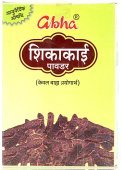Dos: 10 definitions
Introduction:
Dos means something in Hinduism, Sanskrit. If you want to know the exact meaning, history, etymology or English translation of this term then check out the descriptions on this page. Add your comment or reference to a book if you want to contribute to this summary article.
In Hinduism
Ayurveda (science of life)
Toxicology (Study and Treatment of poison)
Source: Shodhganga: Kasyapa Samhita—Text on Visha ChikitsaDos (दोस्) refers to the “arms” [?], as taught in the Marma (“vital points of the body”) section of the Kāśyapa Saṃhitā: an ancient Sanskrit text from the Pāñcarātra tradition dealing with both Tantra and Viṣacikitsā—an important topic from Āyurveda which deals with the study of Toxicology (Agadatantra or Sarpavidyā).—The Kāśyapasaṃhitā specifically mentions that snake-bite in the sense organs, heart, between the eye-brows, bosom, belly, palate, joints, neck, forehead, chin, middle of the navel and joints of the feet [doḥ–doḥpādamadhyasandhau], is highly risky.

Āyurveda (आयुर्वेद, ayurveda) is a branch of Indian science dealing with medicine, herbalism, taxology, anatomy, surgery, alchemy and related topics. Traditional practice of Āyurveda in ancient India dates back to at least the first millenium BC. Literature is commonly written in Sanskrit using various poetic metres.
Purana and Itihasa (epic history)
Source: archive.org: Shiva Purana - English TranslationDos (दोस्) refers to the “hands”, according to the Śivapurāṇa 2.4.18 (“Gaṇeśa crowned as the chief of Gaṇas”).—Accordingly, as Brahmā narrated to Nārada: “[...] On seeing her son, Pārvatī was highly delighted. Taking him up with both her hands (dos) she embraced him joyously. She then lovingly gave him different clothes and ornaments. He was honoured by the goddess who bestowed all Siddhis on him and touched him with her hand that removes all distress. After worshipping her son, and kissing his face, she granted him boons with affection and said—‘You have had great distress since your very birth. [...]’”.

The Purana (पुराण, purāṇas) refers to Sanskrit literature preserving ancient India’s vast cultural history, including historical legends, religious ceremonies, various arts and sciences. The eighteen mahapuranas total over 400,000 shlokas (metrical couplets) and date to at least several centuries BCE.
Languages of India and abroad
Sanskrit dictionary
Source: DDSA: The practical Sanskrit-English dictionaryDos (दोस्).—m., n. [damyate anena dam do'si ardharcā°; Uṇādi-sūtra 2.69] (doṣan is optionally substituted for this word after acc. dual.)
1) The forearm, the arm; तमुपाद्रवदुद्यम्य दक्षिणं दोर्निशाचरः (tamupādravadudyamya dakṣiṇaṃ dorniśācaraḥ) R.15.23; हेमपात्रगतं दोर्भ्यामादधानं पयश्चरुम् (hemapātragataṃ dorbhyāmādadhānaṃ payaścarum) 1.51; Kumārasambhava 3.76.
2) The part of an arc defining its sine.
3) The side of a triangle or square.
4) A measure of eighteen inches; Mātaṅga. L.1.14.
Source: Cologne Digital Sanskrit Dictionaries: Benfey Sanskrit-English DictionaryDos (दोस्).— (the base of many cases is doṣan), n. The fore-arm, Rām, 3, 35, 78.
Source: Cologne Digital Sanskrit Dictionaries: Cappeller Sanskrit-English DictionaryDos (दोस्).—[neuter] ([masculine]) fore-arm, arm i.[grammar]
Source: Cologne Digital Sanskrit Dictionaries: Monier-Williams Sanskrit-English Dictionary1) Dos (दोस्):—[from doṣan] n. (m. only, [Rāmāyaṇa vi, 1, 3]; [nominative case] [accusative] sg. dos, [Śatapatha-brāhmaṇa]; [dual number] doṣī, [Kauśika-sūtra]; dorbhyām n., [Mahābhārata; Kāvya literature]; [plural] bhis, [Mālavikāgnimitra]; dohṣu, [Bhāgavata-purāṇa]) the fore-arm, the arm etc. = doṣan (q.v.)
2) [v.s. ...] the part of an arc defining its sine, [Sūryasiddhānta]
3) [v.s. ...] the side of a triangle or square, [Horace H. Wilson] (cf. bāhu and bhuja).
Source: Cologne Digital Sanskrit Dictionaries: Yates Sanskrit-English DictionaryDos (दोस्):—(doḥ) 5. m. An arm; the side of a triangle or square.
Source: DDSA: Paia-sadda-mahannavo; a comprehensive Prakrit Hindi dictionary (S)Dos (दोस्) in the Sanskrit language is related to the Prakrit word: Do.
[Sanskrit to German]
Sanskrit, also spelled संस्कृतम् (saṃskṛtam), is an ancient language of India commonly seen as the grandmother of the Indo-European language family (even English!). Closely allied with Prakrit and Pali, Sanskrit is more exhaustive in both grammar and terms and has the most extensive collection of literature in the world, greatly surpassing its sister-languages Greek and Latin.
See also (Relevant definitions)
Starts with (+227): Dohpada, Donmat, Dorjya, Dos koum, Dosa Carita, Dosa Mula Citta, Dosa Team, Dosagaru, Dosagata, Dosaggi, Dosahetuka, Dosaippadi, Dosakaya, Dosaki, Dosakkhana, Dosakkhaya, Dosalla, Dosamisi, Dosaniya, Dosantara.
Ends with: Abydos, Ancados, Bhadrados, Caturdos, Comida de venados, Dandos, Grama de prados, Hierba de tres dedos, Lunados, Maladosodos, Pride-of-barbados, Sahasrados, Six Bardos, Tento-dos-mudos, Tres dedos, Uwai podos.
Full-text (+57): Sahasrados, Do, Dohshikhara, Doshan, Dorjya, Dormula, Dorgraha, Dorgadu, Dostha, Daushka, Rape-dos-indios, Lirio dos vales, Salsa dos pantanos, Erva-bicha-dos-hervanarios, Aipo da agua e dos pantanos, Trevo-dos-charcos, Madya, Tento-dos-mudos, Salsaparrilha-dos-pobres, Dos koum.
Relevant text
Search found 43 books and stories containing Dos; (plurals include: Doses). You can also click to the full overview containing English textual excerpts. Below are direct links for the most relevant articles:
John Dos Passos: The Novelist as Social Historian < [April – June, 1985]
Brotherly Love of a Mosquito < [October – December, 2008]
Even Heaven is Hell for me Sans Your Nagging! < [October – December, 2006]
Maha Prajnaparamita Sastra (by Gelongma Karma Migme Chödrön)
II. The power of the Buddha is dependent on that of the Bodhisattva < [Part 2 - Acceding to innumerable universes]
Part 3 - Patience in regard to the Buddhadharma < [Chapter XXV - Patience Toward the Dharma]
Jainism and Patanjali Yoga (Comparative Study) (by Deepak bagadia)
Part 5.4 - Cheda-sutras, Chulika-sutras and Mula-sutras < [Chapter 3 - Jain Philosophy and Practice]
Part 5.1 - The main Twelve Angas < [Chapter 3 - Jain Philosophy and Practice]
Rasa Jala Nidhi, vol 2: Minerals (uparasa) (by Bhudeb Mookerjee)
Part 3 - How to take gandhaka < [Chapter VIII - Uparasa (9): Gandhaka (sulphur)]
Part 4 - Uses of gairika < [Chapter IX - Uparasa (10): Gairika (red ochre)]
Part 5 - Evil effects of taking impure shila-jatu < [Chapter IV - Uparasa (4): Shilajatu or Shilajit (bitumen)]
Indian Medicinal Plants (by Kanhoba Ranchoddas Kirtikar)
Notes on the alkaloid atisine < [Notes]
62. Argemone mexicana, Linn. < [Papaveraceae (poppy family)]
50. Berberis aristata, D.C. < [Berberidaceae (barberry family)]
Rasa Jala Nidhi, vol 3: Metals, Gems and other substances (by Bhudeb Mookerjee)
Part 12 - Dosage of taking iron < [Chapter IV - Metals (4): Lauha (iron)]
Part 7 - Uses of Vaikranta < [Chapter XX - Gems (8): Vaikranta (garnet)]
Part 4 - Use of brass < [Chapter VIII - Mixed metals (1): Pittala (brass)]
Related products
(+7 more products available)





